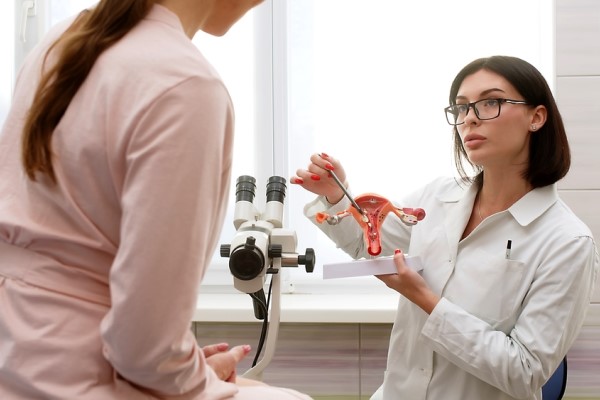How To Prepare for Your Women’s Health Exam

Women's health exam help ensure overall health while screening for conditions and health risks. Not only will the doctor help with any current symptoms, but they can also screen for conditions like breast and cervical cancer in otherwise healthy patients. Despite the importance of these exams, it is common to feel uncomfortable about receiving them. Learning how to prepare and what to expect during a women’s health exam can help make the whole experience more comfortable.
What are women’s health exams?
A women’s health exam is an annual exam that diagnoses health issues affecting female patients. According to the Cleveland Clinic, this includes ovarian, cervical, and breast cancer. The main components of women’s health exams are:
- Pelvic exams
- Pap smears
- Breast exams
- Questions about health and well-being
- Taking vital signs (blood pressure, weight, etc.)
That said, pelvic exams and pap smears are not a part of every women’s health exam because they do not need to be performed yearly. However, the other components can be expected each time. Patients can also look at the exam as an opportunity to ask questions about birth control, menstruation, fertility, and sexual health. For instance, the urgent care or primary care doctor can discuss birth control options, help manage premenstrual symptoms, and test for sexually transmitted infections (STIs).
Preparing for women’s health exams
Most of the preparation for women’s health exams is mental and emotional. This mainly involves mentally preparing oneself to have the exam done. It may also involve taking a few hours or the rest of the day off after the exam to recuperate.
While it can feel scary to get these exams, patients can rest assured that urgent care and primary care doctors prioritize patient comfort as much as they can. Some patients find it helpful to have a trusted loved one, like their mother or partner, come with them to the exam. Others find it helpful to have more than one healthcare provider in the room, such as a female doctor or nurse accompanying as a chaperone, during the exam.
Besides mental preparation, here is what else to know when preparing for women’s health exams:
What to bring
As for any healthcare appointment, patients must bring proof of insurance, identification, and any necessary medical documents on the day of their women’s health exam. A primary care doctor will likely want to see any medical records from the patient’s previous provider for a better picture of the patient’s health. Thus, bring the contact information of any healthcare providers visited in the last couple of years.
Also, make sure to bring comfortable clothes. The patient will need to disrobe and put on a hospital gown for a women’s health exam, so make sure the clothes are easy to change in and out of. The urgent care or primary care staff will provide the hospital gown, leaving the room to allow the patient to change into it comfortably.
What else to expect
As part of a women’s health exam, patients can expect questions about their sexual health, whether they have plans to become pregnant, and their menstrual cycle. None of this is meant to be judgmental. It only ensures good health and informs whether certain tests are needed, such as STI tests.
Schedule your next women’s health exam
Women’s health exams are an important healthcare service. If you have not yet had this annual exam, Millennium Medical Care Stone Springs is here to help. Schedule an exam with our Sterling team today.
Request an appointment here: https://stonesprings.millenniummedicalcare.com or call Millennium Medical Care Stone Springs at (703) 665-3242 for an appointment in our Sterling office.
Check out what others are saying about our services on Yelp: Women's Health Exam in Sterling, VA.
Related Posts
The common cold is appropriately named. This illness is perhaps the most common health problem that people experience. It will affect individuals of all ages, including babies and the oldest patients. You have almost certainly had your share of colds in the past. The good news is that there are ways to minimize your risks…
Struggling with the common cold is something that just about everyone will experience at some point. Yearly bouts with a cold are highly likely, as most people get at least one every 12 months. It is extremely contagious and caused by one of three viruses through close contact. Some people have mild symptoms, but that…
Urgent care centers treat non-emergency medical issues that still require immediate medical attention. Understanding what to expect and preparing for your visit can make the experience smoother and more efficient. Below are key things to consider before visiting one of these facilities.Urgent care centers fill the niche between hospital emergency rooms and primary care doctors…
A common cold infection often produces thick phlegm. This discharge is sticky and thick. The increase in phlegm production often results in more coughing and difficulty of breathing. Some say that consuming dairy products can increase phlegm production. If you want to know if dairy does increase phlegm production during a common cold infection, here…


